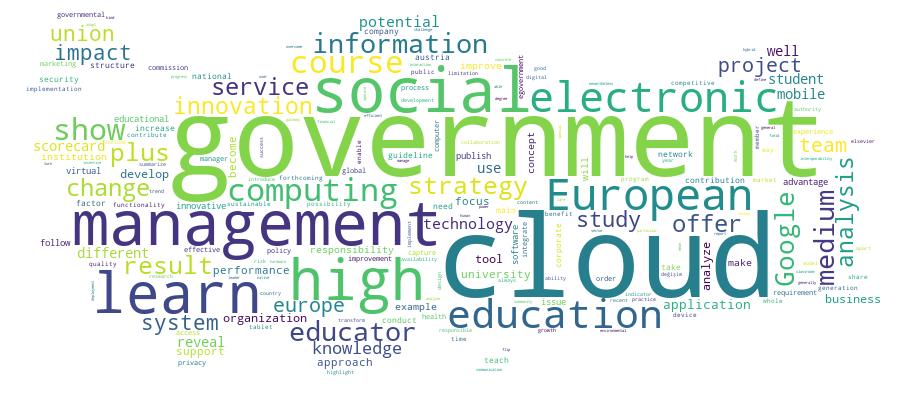Oberer, Bırgıt
Loading...

Profile URL
Name Variants
Oberer, Bırgıt
B.,Oberer
B. Oberer
Bırgıt, Oberer
Oberer, Birgit
B.,Oberer
B. Oberer
Birgit, Oberer
Oberer,B.
Oberer, B.
B.,Oberer
B. Oberer
Bırgıt, Oberer
Oberer, Birgit
B.,Oberer
B. Oberer
Birgit, Oberer
Oberer,B.
Oberer, B.
Job Title
Dr. Öğr. Üyesi
Email Address
Bırgı[email protected]
Main Affiliation
Management Information Systems
Status
Former Staff
Website
ORCID ID
Scopus Author ID
Turkish CoHE Profile ID
Google Scholar ID
WoS Researcher ID
Sustainable Development Goals
15
LIFE ON LAND

0
Research Products
16
PEACE, JUSTICE AND STRONG INSTITUTIONS

6
Research Products
14
LIFE BELOW WATER

0
Research Products
6
CLEAN WATER AND SANITATION

0
Research Products
3
GOOD HEALTH AND WELL-BEING

1
Research Products
17
PARTNERSHIPS FOR THE GOALS

1
Research Products
4
QUALITY EDUCATION

1
Research Products
2
ZERO HUNGER

0
Research Products
10
REDUCED INEQUALITIES

2
Research Products
7
AFFORDABLE AND CLEAN ENERGY

0
Research Products
13
CLIMATE ACTION

0
Research Products
1
NO POVERTY

0
Research Products
9
INDUSTRY, INNOVATION AND INFRASTRUCTURE

3
Research Products
12
RESPONSIBLE CONSUMPTION AND PRODUCTION

1
Research Products
8
DECENT WORK AND ECONOMIC GROWTH

0
Research Products
11
SUSTAINABLE CITIES AND COMMUNITIES

0
Research Products
5
GENDER EQUALITY

0
Research Products

This researcher does not have a Scopus ID.

This researcher does not have a WoS ID.

Scholarly Output
27
Articles
1
Views / Downloads
177/4468
Supervised MSc Theses
1
Supervised PhD Theses
0
WoS Citation Count
42
Scopus Citation Count
19
WoS h-index
4
Scopus h-index
3
Patents
0
Projects
0
WoS Citations per Publication
1.56
Scopus Citations per Publication
0.70
Open Access Source
9
Supervised Theses
1
Google Analytics Visitor Traffic
| Journal | Count |
|---|---|
| Procedia - Social and Behavioral Sciences | 3 |
| Procedia Economics and Finance | 2 |
| Innovation Vision 2020: Sustainable growth, Entrepreneurship, and Economic Development - Proceedings of the 19th International Business Information Management Association Conference -- 19th IBIMA Conference on Innovation Vision 2020: Sustainable Growth, Entrepreneurship and Economic Development -- 12 November 2012 through 13 November 2012 -- Barcelona -- 103298 | 1 |
| 2015 8th International Conference on u- and e-Service, Science and Technology (UNESST) | 1 |
| Proceedings of the International Conference on e-Learning, ICEL | 1 |
Current Page: 1 / 2
Competency Cloud


